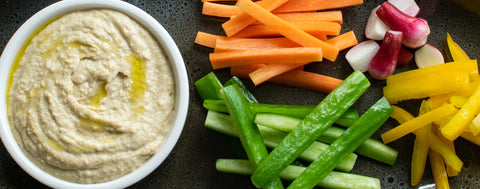It’s a question we’ve all had at some point in our wellness journey, can I have a drink and still stay healthy and fit, or, will that night out inhibit all of the progress I’ve been making toward my healthier lifestyle.
Many New Zealanders enjoy a drink. In fact, alcohol is New Zealand’s most widely used social drug. There are numerous why we drink. For some, it’s a way to socialise, it can be a habit to enjoy alcohol alongside dinner with your partner, or wind down from a stressful day. Some use it as a coping mechanism to suppress feelings or to distract themselves from thoughts. Regardless of the reason, many of us are over-drinking without even realising it which can have negative effects on our body.
Let’s take a look at how alcohol affects our body
Liver – when we drink daily, or regularly, the liver can get overloaded. The liver is our body’s detox organ. When our body has alcohol poured into it, it then has to remove this from the bloodstream because it’s such a harmful, toxic substance to our body. The human body cannot excrete alcohol on its own, it has to go through the liver which converts it into acetaldehyde, and then the acetaldehyde can be excreted. When the liver is busy dealing with alcohol as a priority, other substances that the liver has to attend to don’t get any attention and are recycled in the bloodstream. Cholesterol and estrogen are two examples of this, which then lead to higher levels of cholesterol and estrogen in the blood, leading to health challenges.
Hormones – when the liver is overloaded the liver detoxification pathways – particularly phase two pathway can become congested causing estrogen to be recycled. High levels of estrogen in the blood can lead to PMS symptoms, painful periods, headaches, migraines, fluid retention and bloating.
Heart – drinking a lot over time, or for some too regularly can increase the risk of stroke, heart attack, arrhythmias (irregular heartbeat), high blood pressure.
Brain health - Alcohol can interfere with the brain’s communication pathways. These disruptions can change mood, behaviour, decision making, making it more challenging to think clearer.
Nutrition deficiencies – alcohol uses up a lot of the body’s b-vitamins, especially B1, vitamin C, and it also decreases some mineral, particularly magnesium levels.
Based on extensive reviews of research studies, there is a strong scientific consensus of an association between alcohol drinking and several types of cancer, especially breast cancer. Alcohol can also affect the stomach lining, it can wear away the mucosa, and it can break down the stomach tissue leading to gastritis and ulcers. Drinking alcohol also causes the body to be acid, which causes your body to use more of the minerals calcium and magnesium to alkalise the bloodstream.
There are lots of reasons why alcohol can be detrimental to our health. And yes, there is research out there that says drinking red wine can also be good for our health. I understand how confusing it can get.
So how much should you drink? This really comes down to the individual and our bio-individuality as well as our lifestyle choices which can influence how our body is able to deal with alcohol, along with being very cautious if there’s a family history of cancer.
Drinking Sensibility
Drinking sensibility is key. I’m all about balance in life. What I tell my clients is to enjoy a few alcohol-free days (AFD’s) per week. This gives the body, especially the liver a break. Alcohol can be immensely pleasurable for some, so moderation (1-2 drinks) along a few AFD’s every week is important. One standard drink is 330ml beer bottle, 100ml of wine or 30ml of spirit. If it’s being used to suppress feeling or reduce stress daily, then I recommend not using alcohol to mitigate your feelings, instead explore other beneficial alternatives such as regular exercise, meditation, talking through challenges with a friend or counselor.
Natural Recovery Tips
With the silly season and warmer weather being upon us it can be easy to get carried away and enjoy a few more drinks than normal, so here are a few tips to help with your recovery when you’ve overindulged:
-
Upon waking drink a large glass of water with the juice from half a lemon hydrate and alkalize your body
-
Drink coconut water – it’s full of electrolytes to replenish the body’s water levels
-
Do some light exercise during the day to help detoxify your body, such as a walk outdoors, yoga, pilates, they all help get the lymphatic system moving
-
Drink at least 2L of water throughout the day to rehydrate your body
-
Take a B-complex vitamin with breakfast and some vitamin C
-
Enjoy a fresh green vegetable juice to boost your nutrition intake and cleanse the liver
-
For breakfast opt for something nourishing that will refuel your body. Good options include a protein smoothie with leafy greens, blueberries, chia seeds, nut butter, almond milk, and protein powder, or enjoy eggs, avocado on sourdough or gluten-free toast. Eggs contain a substance called cysteine which breaks down acetaldehyde (the toxin in alcohol)
-
Eat foods which support your liver’s detoxification process such as the brassica veggies (broccoli, cauliflower, kale, cabbage, brussels sprouts), other great liver cleansing foods are carrots, beetroot, garlic, onion, leafy greens.
Written by Natalie Brady
References
-
Alcohol Drug Helpline. Alcohol. 2018. Available from: https://www.drugfoundation.org.nz/policy-and-advocacy/drugs-in-nz/
-
Llerena, S., Arias-Loste, M. T., Puente, A., Cabezas, J., Crespo, J., & Fábrega, E. (2015). Binge drinking: Burden of liver disease and beyond. World journal of hepatology, 7(27), 2703-15.
-
Gill, J. (2000). The effects of moderate alcohol consumption on female hormone levels and reproductive function. 35(5):417-23.
-
National Institute on Alcohol Abuse and Alcoholism. 2018. Alcohol’s Effects on the body. Available form https://www.niaaa.nih.gov/alcohol-health/alcohols-effects-body




